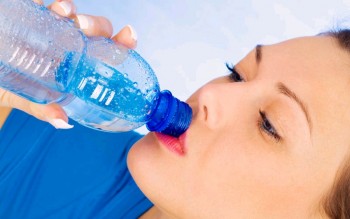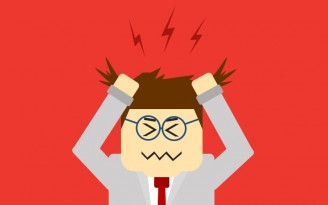
Learn about the importance of water for the human body
Karine Salles
Monday | April 27, 2015 | 3:22 PM | Last update: September 22, 2016, 4:07 PM (Brasilia time)

Water is one of the most essential elements for the human body, as it is present in every cell, tissue and organ of the body. A good hydration enables nutrients to be carried by the bloodstream to all cells, nourishing these structures so that they can be well-formed. It also regulates our functions. A well-hydrated individual will have well-nourished skin, nails and hair.
Body functions depend on water: chemical reactions, breathing, circulation, kidney functions, detoxification, digestion, defense systems, skin, in short, everything that is necessary to maintain life.
“Water increases blood volume. With this increase in the volume of blood, the nutrients carried by the blood will be better distributed. Water promotes the cleaning of our body. It expels toxins, eliminating the excess of minerals such as sodium, for instance. It is very important to regulate our entire body”, nutritionist Andréia Carrara said.
Another benefit highlighted by the nutritionist is the proper function of the intestines. "Excesses are eliminated with water; the intestines work much better. It hydrates the fecal matter and helps expel feces with greater ease”.
Daily ingestion of water must be enough for the body’s full health. Nutrologist Durval Ribas, President of the Brazilian Association of Nutrology, explains that if a person does not hydrate himself properly, the systems of his entire body will suffer. “It is fundamental to drink some form of liquid, not necessarily water, every two or three hours. Natural fruit juices and coconut water are also very welcome”.
Water also helps regulate body temperature, our skin also needs water to perform exchanges with the outer environment and maintain itself hydrated with vitality. Specialists point out that the human body does not have a mechanism to store water; therefore, the amount lost every day must be replaced in order to maintain health and the efficiency of body functions.
Dehydration
The human body is made of 70% of water, and when the levels of liquid fall, we have dehydration. When diagnosed early, it can be easily avoided and treated.
Light dehydration causes symptoms such as weakness, giddiness, headaches and tiredness; when serious, it can lead to death. When lost liquids are not replaced, the levels of sodium in the bloodstream increase and other complications appear. Dehydrated individuals have a volume of blood which is below norm, and this forces the heart to increase the frequency of heartbeats, a condition known by doctors as tachycardia. Under normal conditions, water is eliminated from the body through sweat, urine, feces and tears. Nutritionist Denise Vale, a professional specialized on monitoring and health services, warns: “Without drinking water or any other liquid, and exposing oneself too much to sun rays may lead to dehydration. The body loses sodium and potassium. The loss of these nutrients may cause death by cardiac arrest”.
Among the causes of excessive loss of liquids, the most common is diarrhea. In the summer, the chances of having diarrhea increase, because viruses that cause this illness tend to multiply both in the environment and in food exposed to heat. Vomiting is also responsible for the most cases of dehydration. Wearing too many clothes also increases the elimination of water by the body and may lead to dehydration.
To conlude, the specialist offered some prevention tips: “Be careful when taking a sauna, and double your attention with the children. When going out with the little ones, always take some water with you. Do not forget to drink juices, eat fruits and avoid too much sun”. Never wait to feel thirsty to drink water, because thirst is already a sign of dehydration.
Version: Robert Rajabally
Revision: Silvana Bosso


